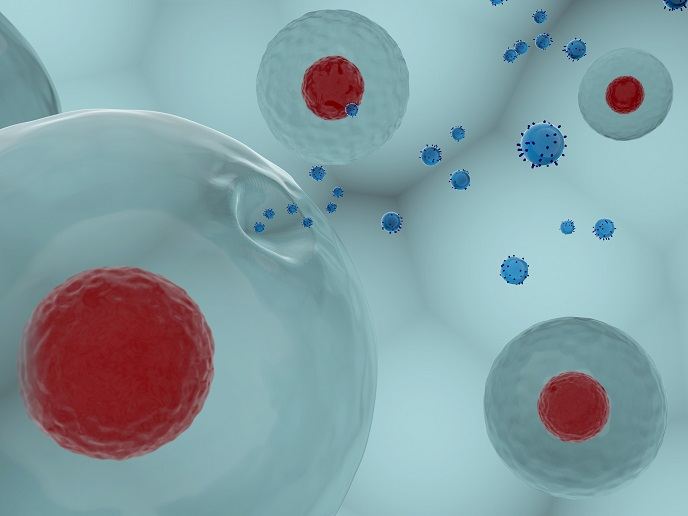Urinary exosomes as biomarkers of kidney disease
Emerging reports stress the importance of the exosome release pathway in protein secretion, antigen presentation and pathogen transfer as well as in intercellular communication. Exosome research has so far helped identify disease-associated biomarkers in cancer. Urinary exosomes contain proteins that are characteristic of all epithelial cells facing the urinary space, including proteins involved in renal diseases. However, their diagnostic potential has been largely underexplored.
Proteomic analysis of urinary and kidney exosomes
Undertaken with the support of the Marie Skłodowska-Curie programme, the EU-funded Exosomes(opens in new window) project investigated the composition and role of urinary exosomes. “Our goal was to discover novel biomarkers from urinary exosomes for the non-invasive diagnosis of renal disease,″ explains project coordinator Robert Fenton, professor of molecular cell biology at Aarhus University. Researchers employed qualitative and quantitative proteomics combined with extensive bioinformatics to study urinary and renal exosomes under normal and pathophysiological conditions. Overall, they discovered that urinary exosomes could reflect the physiological changes in the kidney to some extent. They also generated a comprehensive proteome database on urinary and kidney exosomes that indicated different pathophysiological conditions. This database could facilitate targeted biomarker discovery in the future. Investigation of exosome secretion regulation unveiled post-translational modification ubiquitination as an absolute requirement for protein sorting into exosomes. In contrast, the removal of ubiquitin moieties from proteins was not an essential step in exosome formation.
Clinical significance of Exosome project findings
Biomarkers have the potential to facilitate diagnosis and treatment of patients with various forms of kidney disease. Kidney biomarker research has largely relied on biopsies obtained from patients with late stage kidney diseases since there are ethical restrictions associated with using human kidneys. However, this approach cannot provide reliable information on the function of normal kidneys or the early onset of kidney disease. The urinary proteome has been suggested as an alternative source for kidney biomarker discovery due to its non-invasive nature and simplicity in processing, but it contains proteins from plasma and the entire genitourinary tract. Urinary exosomes constitute a more targeted approach for biomarker discovery than unfractionated urine. The Exosomes project has demonstrated that urinary exosomes can reflect the state of the kidney and can thus be exploited for diagnosis and for monitoring treatment outcome in patients. Exosomes project researchers are currently collaborating with clinicians from Australia to investigate the urinary exosomes from patients with primary aldosteronism (PA), a disease that leads to high blood pressure. With additional funding from international sources they are undertaking large-scale profiling and quantitative proteomics to identify urinary exosome biomarkers in PA patients. Recent notable technological advances have rendered proteomics a very popular resource in kidney research. Using proteomics analysis to study urinary exosomes constitutes a powerful new method for investigating the mechanisms of kidney function in health and disease. Fenton emphasises that “a large number of samples and standardised methodology for high-throughput analysis are necessary to streamline the process for diagnosis and biomarker discovery.″ Nonetheless he is hopeful that exosome biomarkers will improve diagnosis of kidney disease which poses a great health risk for millions of people worldwide.







